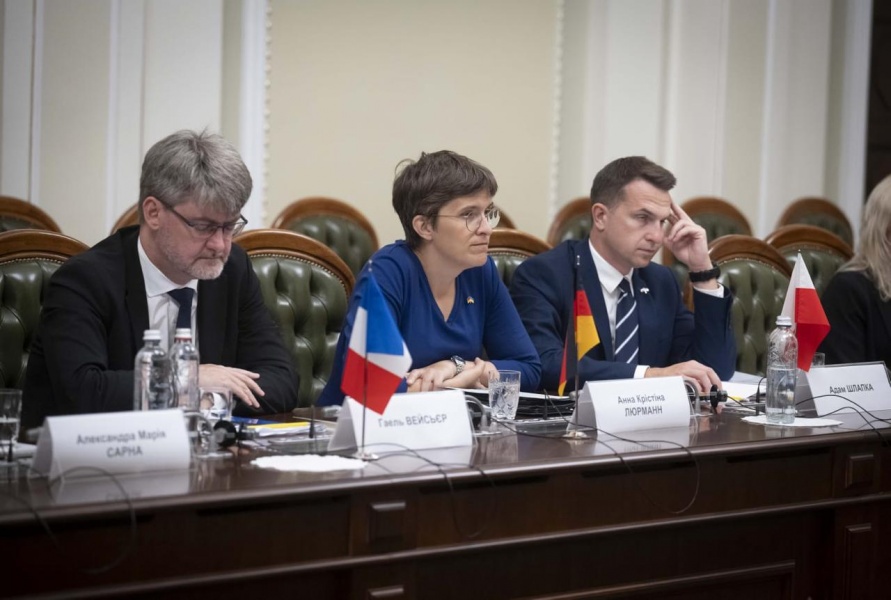
The Chair of the Committee thanked the countries of the Weimar Triangle for their position in granting Ukraine candidate status for EU accession, the opening of accession negotiations and the decision on the first intergovernmental conference between Ukraine and the EU on 25 June in Luxembourg. “To succeed, we need further support from our partners. We understand that we have a lot of work ahead of us, but we also understand that everything we succeeded in, all decisions, even if they were political, were based on the work that began in 2014 after the Revolution of Dignity, in the process of implementing the Association Agreement and obtaining a visa-free regime,” — she said. “Now, in order to continue reforms in Ukraine and focus on its transformation, it is fundamental for us to ensure that we have enough capacities to fight. Therefore, the biggest priorities remain weapons and air defence. It is also critical and urgent for us to launch processes in the coming weeks that will help prepare the energy sector for winter. The functioning of our economy, the ability to collect taxes and pay the bills of the defence and the liberation war depend on it.”
Ivanna Klympush-Tsintsadze called on partners to strengthen their diplomatic and expert presence in Ukraine for serious and clear interaction, as well as rapid exchange of information and opinions concerning fulfilling Ukraine’s European integration obligations. In her opinion, their efforts should be aimed at helping to build Ukraine's institutional capacity for rapprochement with the EU. For the sustainability of European integration efforts, the state must have capacities at the central and regional level, the Chair of the Committee is convinced.
The representatives of Germany, Poland and France were interested in how Ukraine is going to work on the first cluster of negotiations on EU accession — Basics. It deals with the enforcement of the rule of law, democratic rights and freedoms, and anti-corruption efforts. In their opinion, these issues are fundamentally important from the point of view of the country's success on the way to the EU. “We understand that these areas need special attention. It is necessary, even during martial law, to return as much as possible to the balance of power, representativeness, basic freedoms and move towards the defined goal with the help of partners,” — stressed Ivanna Klympush-Tsintsadze.
More posts by topic
“All publications”
23 July 2025 11:37
11 July 2025 11:31
07 July 2025 11:24
29 July 2024 09:44
24 July 2024 09:46
15 July 2024 10:28
11 July 2024 10:30
09 July 2024 10:07
28 June 2024 10:41
22 June 2024 10:49